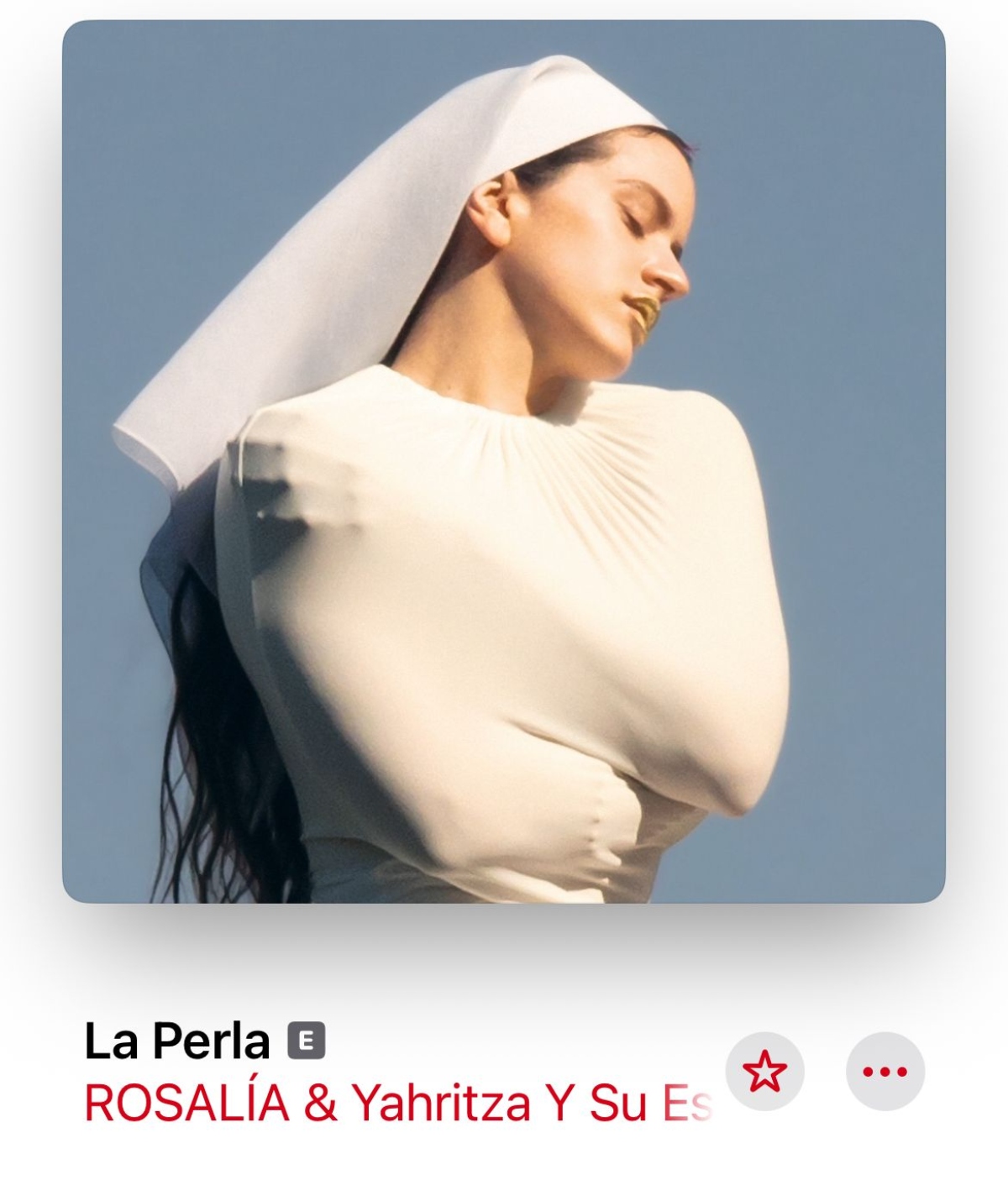The release of Lux, Rosalía’s long-awaited new album, has been one of the most talked-about musical events of the year. However, among the eighteen songs that make up this conceptual project, there is one that has grabbed all the attention: “La Perla”.
What initially seemed like just another piece in the ambitious sonic universe of the album, soon became a viral phenomenon and the epicenter of a controversy that has resonated both in social networks and in the international press.
La Perla has been interpreted as a lyrical catharsis, a song loaded with metaphors, irony and pain that many fans consider a direct response to her ex-partner, Rauw Alejandro.
Far from being limited to a personal venting, the song exposes a mixture of vulnerability and poetic fury, where Rosalía turns heartbreak into art and hurt into strength.
The title is not a coincidence. “La Perla” is also the name of an emblematic coastal neighborhood in San Juan, Puerto Rico, where Rauw Alejandro was born and which has been mentioned on several occasions by the singer as a symbol of his identity. Since its revelation, the title generated speculation among fans, but it was the lyrics that cleared up any doubts.
In one of the most quoted stanzas of the song, Rosalía launches direct verses that reflect betrayal and disenchantment: “Hello, thief of peace, minefield for my sensitivity, playboy, a champion, Olympic gold medal to the most bastard, you have the podium of the great disillusionment.”
The composition continues with an intense emotional charge and an implicit criticism of the lack of commitment: “Loyalty and fidelity is a language you will never understand.”
Rosalia dedication to Rauw Alejandro: From woundedness to empowerment

The tone of La Perla mixes anger, irony and melancholy, reminiscent of other recent anthems of heartbreak transformed into feminine strength. For this reason, it was soon baptized by social network users as “Rosalía’s Shakirazo”, in reference to BZRP Music Session #53, where Shakira narrated her breakup with Gerard Piqué.
Although Lux is an experimental work that combines flamenco, opera, electronic music and a structure divided into four movements -interpreted in up to thirteen languages-, it has been La Perla that has concentrated the media and emotional debate, confirming that Rosalía continues to master the art of turning her life into a universal narrative.
Social networks exploded after the premiere of the song. On X (formerly Twitter) and TikTok, fans of the artist shared theories, clips and analysis of each verse, looking for hidden references to the relationship she had with Rauw Alejandro for almost three years. Some users even mentioned past rumors of alleged infidelity, which Rosalía herself would have hinted at in interviews and publications, although never confirmed.
Among the hypotheses that resurfaced is a story that circulated in international forums, according to which the singer would have discovered a betrayal with a man of German origin. However, neither Rosalía nor Rauw Alejandro have ever confirmed this version. Both assured at the time that their breakup, publicly announced in July 2023, took place “without third parties involved” and in terms of mutual respect.
Rauw himself, during a live broadcast, asked not to spread lies about his ex-partner, stating, “I never disrespected Rosalia or our relationship.” However, La Perla’ s tone has reignited the debate and reopened old wounds in public opinion.
Beyond the media morbidity, La Perla represents one of the most sincere and powerful moments of Rosalía’s career. Musically, it combines a minimalist base with electronic arrangements that accompany a heartbreaking vocal performance. Its structure is sustained by the emotional tension that characterizes Lux, an album conceived as a spiritual and human journey between darkness and light.
The track consolidates the maturity of an artist who has moved from the experimentalism of Motomami to a more introspective and literary register, reaffirming her absolute mastery over the contemporary pop narrative.
In short, La Perla not only eclipses the release of Lux, but also reaffirms Rosalía as an author capable of transforming pain into a universal artistic language, where each word resonates as a confession and each verse becomes resistance.
Here you can listen to the song ‘La Perla’ by Rosalía.
Find out more at ‘QueOnnda.com’.














